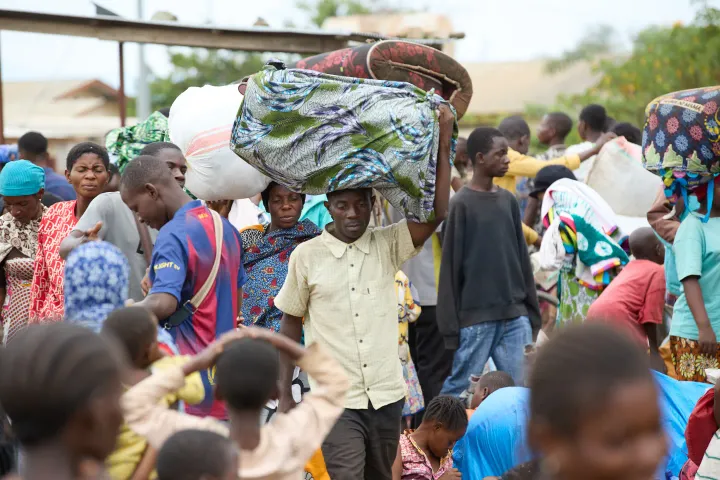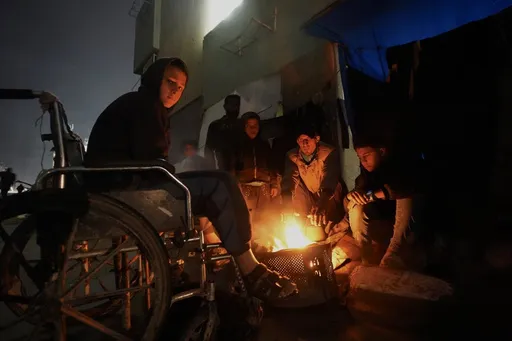By Mubarak Aliyu
The search for a new Sankara has led to widespread political instability in Burkina Faso since 2014, when the long-standing Compaore administration was ousted by popular protests.
However, a new Sankara may not exist today, as the socio-political context has changed widely since the 1980s.
Thomas Sankara was a Burkinabé leader known for his role in implementing progressive socio- economic policies and reforms which improved the lives of ordinary citizens in Burkina Faso.
His remarkable achievements in boosting literacy and health outcomes, as well as environmental policy and gender equality in the space of three years, placed him ahead of his time and redefined the possibilities of endogenous development across the African continent.
A primary setback in Sankara’s legacy which must be discussed, however, was the nature in which he came to power.
The rise of Sankara
The 1983 coup which was staged by his comrade Blaise Compaoré, and other fellow army colleagues, ousted the Ouédraogo regime and established the National Council of the Revolution (Conseil National de la Révolution) with Sankara as its president.
Sankara’s subsequent political reforms included the removal of Burkina Faso’s traditional leaders, as well as radical cuts to government spending which he considered wasteful.
Over time, a group of high-ranking officials, including Compaoré, did not support his progressive policies.
These sentiments led to the division of the military into two main factions, with one supporting Sankara and the other siding with Compaoré.
With significant foreign support and a local military advantage in Burkina Faso, Sankara was eventually assassinated in a bloody coup led by Compaoré in 1987.
'Sankarists' vs 'Compaorists'
Today, Burkina Faso’s political landscape remains heavily divided among ‘Sankarists’ and ‘Compaorists’, with the former being progressive and the latter considered more conservative.
This legacy has significantly informed the power struggle within the country since 1987, following Sankara’s assassination.
In 2003, at least 16 soldiers were arrested in Ouagadougou, following an alleged coup plot.
Among those arrested was Michel Norbert Tiendrebéogo, leader of a Sankalist party known as the Socialist Military Front.
The alleged 2003 coup attempt set the tone for the political instability that would ensue between Sankarists and Compaorists in the 2020s.
The fall of Compaoré
Compaoré was eventually removed from his 27- year rule following popular protests in 2014.
Investigations into his involvement in Sankara’s killing were launched in 2021 and resulted in a trial and life sentence for Compaoré, along with two of his former top associates.
However, the civilian government was overthrown by a junta in January 2022, and the country was under another military regime led by Paul-Henri Sandaogo Damiba.
While the coup was not explicitly a reaction to the sentencing, there were notable Compaorists involved, despite Damiba initially citing Sankara's ideals as a significant motivation for his power grab.
Months after the coup, the Damiba government invited Compaoré to attend a reconciliatory meeting of former presidents in the nation’s capital of Ouagadougou, allowing the convicted and self- exiled former president to return to Burkina Faso for days and eventually leave without being arrested.
Ibrahim Traore's arrival
The perceived impunity of Compaoré’s visit from exile in Cote d’Ivoire which was enabled by Damiba’s government would motivate another coup two months later, this time by Sankarists under the leadership of Ibrahim Traore, who took power in September 2022.
The Traoré coup has so far been the latest in a long-standing power struggle between Sankarists and Compaorists, demonstrating the political implications of Sankara’s legacy on the political spectrum in Burkina Faso.
Considering the anti- imperialist policies of Ibrahim Traoré, it did not come as a surprise when the junta announced a foiled coup attempt in September 2023, demonstrating the likelihood of further power grabs.
This high level of political instability can be traced back to the assassination of Sankara, which was orchestrated by foreign powers using Compaoré’s influence.
Sankara the socialist
As was common in the era, Sankara's legacy was intertwined with cold-war politics, when geopolitical interests heavily shaped the political space within Africa.
As a socialist, he threatened the interests of Western powers who saw his policies as a threat to their influence in Africa.
In recent years, geopolitical power struggles in the continent have been rekindled, with the key actors remaining the same, and new actors being active in the mix.
The waving of Russian flags in Burkina Faso during popular demonstrations in support of the junta indicates worrying trends of replacing one European influence with another, which in fact runs contrary to Sankara’s legacy.
Anti-imperialism at its core must be understood as a struggle for independence, rather than dependence on one side of the global power divide.
It is the responsibility of Burkina Faso’s leaders to chart a new people-led path to governance. One that is informed by its history and accommodates the peculiarities of its societies.
A new Sankara?
It is also the duty of the Burkinabé people and indeed all Africans to take the positive ideas from Sankara’s legacy and bring them forward; to foster new approaches to good governance, as opposed to supporting military coups with blind hopes of finding a new Sankara.
After all, his legacy was one of non- conformity, where old formulas were discarded for new ones.
Mubarak Aliyu is a Political and Security Risk Analyst who specialises on West Africa and the Sahel Region
Disclaimer: The views expressed by the author do not necessarily reflect the opinions, viewpoints and editorial policies of TRT Afrika.
Click here to follow our WhatsApp channel for more stories.
























